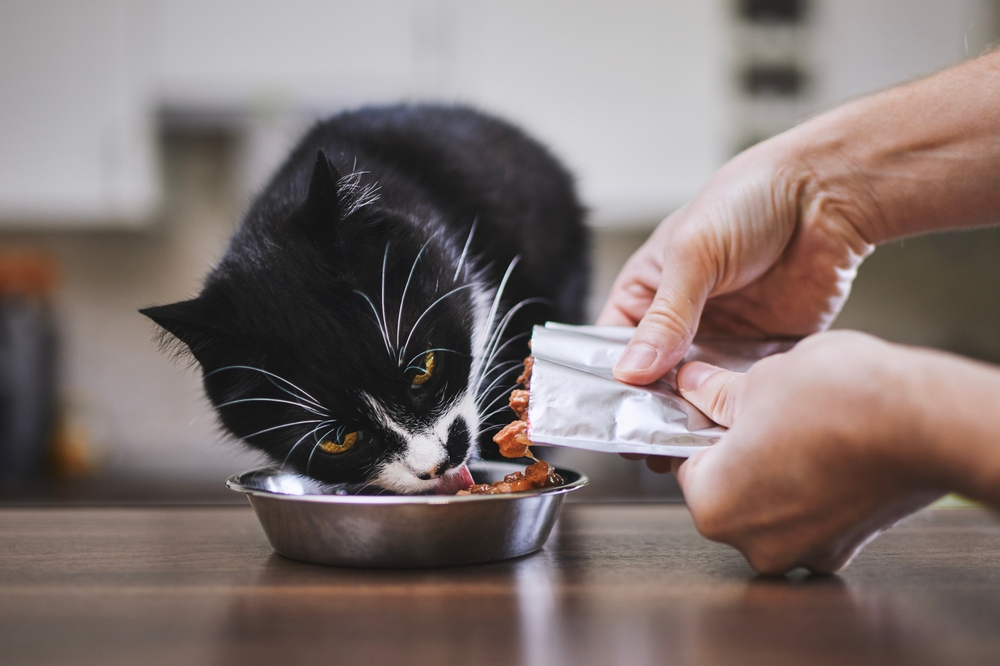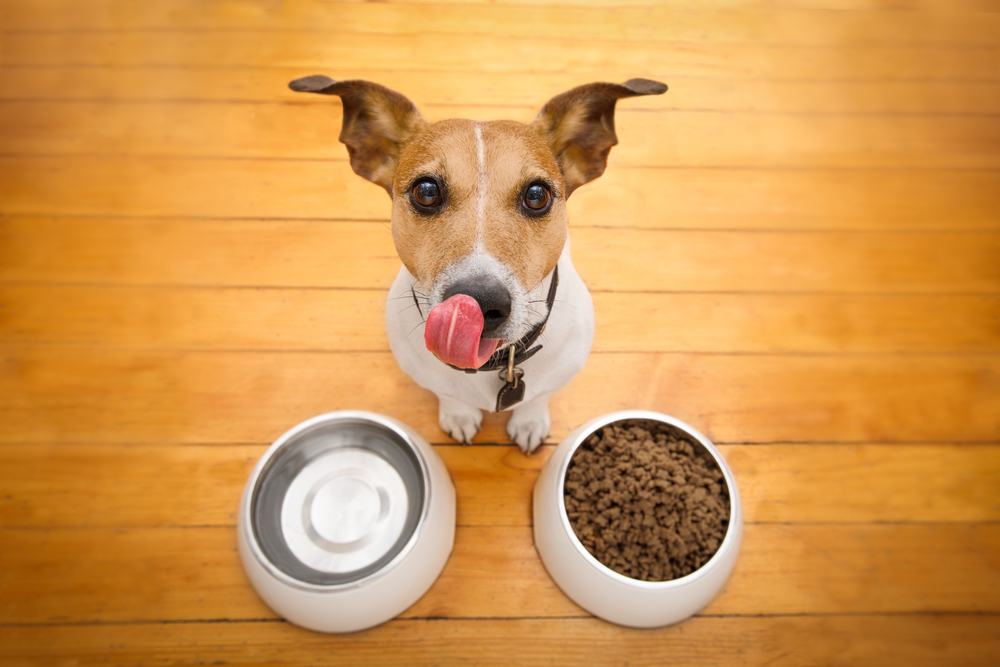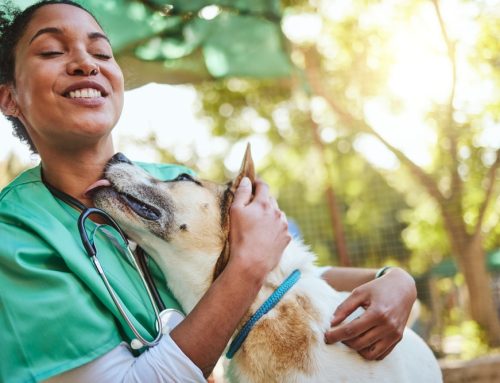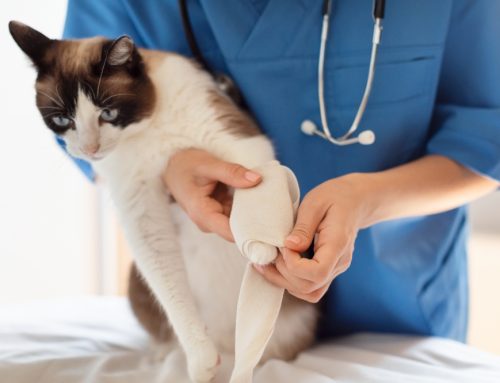Proper nutrition plays a vital role in your pet’s overall health, from their energy level and shiny coat to disease prevention and longevity. Unfortunately, with so much conflicting information circulating, separating sound advice from well-meaning but misguided myths can be a real challenge. Our Lytle Veterinary Clinic team is passionate about providing the best possible care for your furry family member so we dispel common pet nutrition myths and explain pet nutrition facts to help you make an informed decision when choosing your pet’s diet.
Myth: Raw pet food is superior
While pet food marketers have led consumers to believe that pets should be fed a “natural” diet, raw meat often has harmful bacteria, such as salmonella and E. coli, which pose dangers to your pet and you. Furthermore, not all raw food diets are nutritionally balanced, potentially leading to deficiencies. A cooked diet formulated by pet nutritionists is usually safe and healthy for pets. If you’re considering raw feeding, consult with us first. We’ll help you assess the risks and benefits.
Myth: Table scraps are good pet treats
Sharing food with your pet might feel like bonding, but people food can lead to digestive upset, begging behaviors, and even obesity. Worse, many of our favorite foods, such as chocolate, grapes, onions, garlic, macadamia nuts, and the sugar substitute xylitol, are toxic to pets. Stick to high-quality pet food and treats to keep your pet nourished properly.
Myth: By-products are low-quality pet food ingredients
The term “by-products” might sound unappealing, but in pet food, they usually refer to highly nutritious organ meats, such as liver or heart, and other wholesome ingredients such as cartilage. Often, by-products provide vitamins and minerals not found in muscle meat. Some pet food companies source by-products even more carefully than regular meat, ensuring they’re free from contamination.
Myth: Natural or organic pet food is healthiest
The terms “natural” and “organic” are loosely regulated in pet food compared with people’s foods. They don’t guarantee high-quality ingredients or nutritional balance. Give your pet food that has been certified by the Association of American Feed Control Officials (AAFCO), indicating your pet’s food meets specific nutritional standards.
Myth: Cats and dogs have the same nutritional needs
Cats and dogs have remarkably different digestive systems and metabolic needs stemming from their evolutionary origins. Cats are obligate carnivores, meaning meat-based proteins and certain nutrients, such as taurine and arachidonic acid, are essential to their diet. While dogs tend to be omnivorous, they still primarily thrive on a meat-centric diet. Feeding your pet the wrong type of food can lead to health problems, so choose foods formulated specifically for your pet’s species.
Myth: Cats can thrive on a vegetarian or vegan diet
This is absolutely false and harmful. Cats cannot get the nutrition they need from plants alone. Taurine deficiency, for example, can lead to blindness and heart disease in cats. While vegetarian pet food brands exist, they are never appropriate for cats.
Myth: Grain-free pet foods are healthy
This pervasive myth paints all grains as the enemy. However, carbohydrates are important energy sources for pets, and grains also offer fiber, vitamins, and minerals. While some pets have grain sensitivities or allergies, for most, whole grains are a healthy part of a balanced diet.
Some pets need grain-free options because they have allergies, but for others, these foods might lack essential fiber and nutrients they need to remain healthy. In addition, certain grain-free diets have recently been linked to heart problems in dogs. Always consult with our team before switching to a grain-free diet so we can evaluate your pet’s individual needs.
What is the best diet for my pet?

No single diet fits every pet’s needs. Age, breed, activity level, and health conditions influence which diet is best for your furry friend. Consider the following:
- Ingredient list — Look for pet foods listing a high-quality protein source as the first ingredient. Avoid options with vaguely labeled ingredients such as artificial additives.
- Life stage — Puppies, kittens, adults, and seniors have different nutritional requirements. Choose food specifically formulated for your pet’s life stage.
- Portion size — Overfeeding your pet, even if it’s the healthiest food, can lead to weight problems. Follow the guide on the pet food package label and consult with our team if you are unsure about your pet’s appropriate meal portion size.
Your pet’s nutrition is a cornerstone of their health. We understand the confusion you may feel about your pet’s diet so we offer personalized guidance on dietary choices that support your furry companion’s health at every life stage. Schedule your pet’s nutrition consultation with our Lytle Veterinary Clinic team.







Leave A Comment